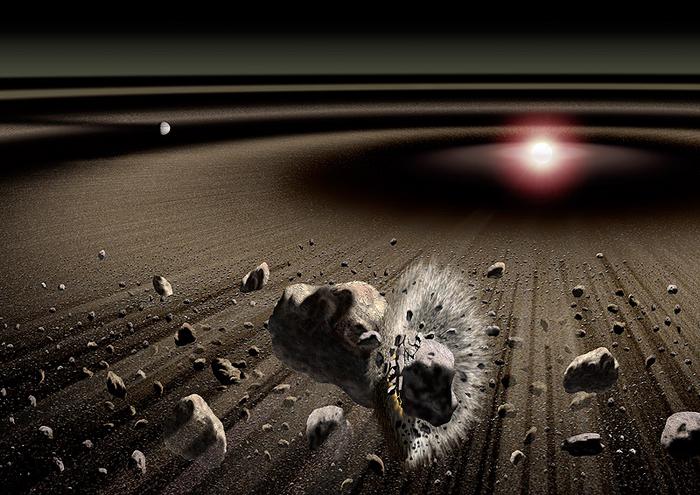Meteorites From the Earliest Planets Reveal How Earth Lost Certain Elements
Posted on Categories Discover Magazine

A medley of elements make life on Earth possible, yet the ways in which our planet has gained them — and lost some in the process — have been on scientists’ minds for years. The major building blocks of life, like water, carbon, and nitrogen, often take center stage, but scientists have recently made sense of another foundational component in Earth’s framework — moderately volatile elements (MVEs).
MVEs, containing such elements as zinc and copper, work in tandem with life-essential elements like oxygen and carbon to form the basis of planetary chemistry. However, MVEs are not as abundant as they once were on Earth. In a new study published in the journal Science Advances, researchers have figured out how our planet’s MVEs were depleted over time, detailing a crucial chapter in Earth’s early history.
Read More: The Earth Might Have Been a Ringed Planet Long Ago
Meteorites From the Early Solar System
In the study, the researchers sought to understand what led to Earth and Mars containing significantly fewer MVEs than chondrites, which are primitive meteorites that hold clues about planetary formation during the dawn of the solar system.
To find answers, the researchers turned to iron meteorites — remnants of the metallic cores of the earliest planetary building blocks. These budding celestial bodies, otherwise known as planetesimals, are thought to be the initial form of Earth and other planets in the solar system, developing around 4.6 billion years ago as dust particles coalesced.
“We found conclusive evidence that first-generation planetesimals in the inner solar system were unexpectedly rich in these elements,” said Damanveer Grewal, a professor of experimental cosmochemistry and geochemistry at Arizona State University and lead author of the study, in a statement. “This discovery reshapes our understanding of how planets acquired their ingredients.”
How MVEs Went Missing
Previously, many scientists believed that MVEs were diminished on Earth because they never fully condensed in the early solar system or escaped during planetesimal differentiation — differentiation describes the assembly of planetary materials into layers; the process of differentiation on Earth, for example, caused the heaviest materials (like iron and nickel) to sink and manifest into a molten core, while less-dense silicates formed a mantle and the lightest silicates formed a thin crust.
The study established that differentiation, however, was not responsible for the loss of MVEs. Instead, early planetesimals retained their MVEs even during differentiation. This means the original materials that eventually developed into Earth and Mars lost their MVEs later on in the formation process, during a period of violent collisions between small cosmic bodies that caused the planets to expand.
A New Planetary Theory
The researchers determined that many inner solar system planetesimals kept MVE abundances (similar to the high concentration of MVEs found in chondrites) as they accumulated more material for growth and experienced differentiation. In this case, the planetesimal that was the beginning stage of Earth didn’t drop its MVEs at the start of its development. Instead, the loss of its MVEs occurred over a prolonged period of time, setting the stage for the chemical composition of Earth.
“Our work redefines how we understand the chemical evolution of planets,” said Grewal. “It shows that the building blocks of Earth and Mars were originally rich in these life-essential elements, but intense collisions during planetary growth caused their depletion.”
Read More: Major Eocene Asteroid Didn’t Change Earth’s Climate in the Long Term
Article Sources
Our writers at Discovermagazine.com use peer-reviewed studies and high-quality sources for our articles, and our editors review for scientific accuracy and editorial standards. Review the sources used below for this article:
Jack Knudson is an assistant editor at Discover with a strong interest in environmental science and history. Before joining Discover in 2023, he studied journalism at the Scripps College of Communication at Ohio University and previously interned at Recycling Today magazine.